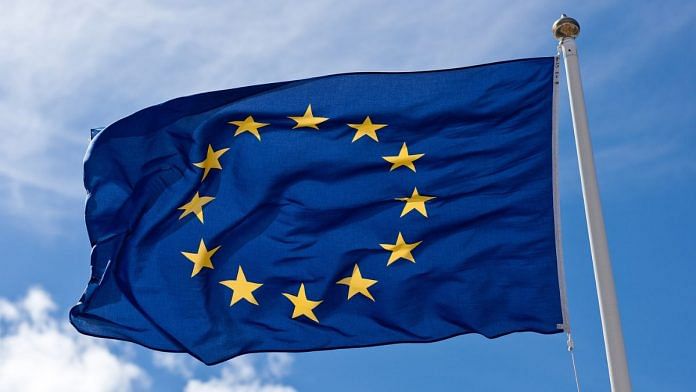On 18 July 2022, the European Council gave its final approval for what is likely to be one of the more significant statutes in digital governance, the Digital Markets Act. Broadly, the DMA aims to curb the economic freedom of large digital companies to address and pre-empt the competitive risks their business models pose. Specifically, it seeks to engender ‘fair competition’ in digital markets by prescribing dos and don’ts for large digital businesses deemed ‘gatekeepers.’ Technology policy hawks in India are likely to see the adoption of DMA as a green light to introduce their own measures to rein in large digital companies. Illustratively, the Parliamentary Standing Committee on Commerce recently recommended identifying “gatekeeper” platforms “of a specific scale” for stricter oversight. Doing so, however, would miss the bigger picture.
To begin with, DMA presumes that obstruction of large digital companies will contribute significantly to making the EU’s digital market more competitive. However, ushering in greater competition in India is not as simple as hamstringing large digital companies to realise the ambitions of the domestic digital economy. Sure, there is an element of large foreign digital companies versus Indian businesses, but there are also other competitive paradigms, such as legacy businesses versus their digital counterparts. Think of hotels versus Airbnb and OYO, taxi companies versus Ola and Uber, and ‘kirana’ stores versus e-tailers like Blinkit and Zepto. Another dimension is Indian start-ups versus more significant Indian concerns. For instance, e-retail has boutique Indian brands competing with the likes of Tata, Aditya Birla, and Reliance.
There are also stakeholders that are at odds with each other in the value chain, such as restaurants and food delivery applications. Reconciling these competing considerations in a manner that increases India’s competitiveness, preserves competition and value in the local digital economy, and keeps consumers satisfied is complicated. Its resolution will take a great deal more than a legislative mandate geared towards restraining large digital companies.
Also Read: India doesn’t need a media market regulator. Industry actually needs more economic freedom
Put carrots first and bring sticks later
To some extent, the Europeans are aware that placing fetters on large digital businesses will not automatically translate into greater competitiveness for their digital companies. The EU is in the process of rolling out several frameworks that attract investment and catalyse growth of its start-ups, even as it enacts a restrictive legislation like the DMA. Consultations for the EU Listing Act are underway, which will ease start-ups’ access to funding by streamlining requirements for initial public offerings (IPOs), while allowing them to retain control of their organisations. Another proposed legislation is the Markets in Crypto Assets Regulation Act (MiCA), which aims to enable innovation by harmonising laws related to crypto-assets across the EU. Among other things, MiCA makes the registration of a business in one member country “passportable” across the EU to enable crypto-businesses seamless access to prospective customers across the continent.
Conversely, legislative interventions in India that target digital companies have largely wielded sticks, and offer few to no carrots. Prominent examples include Draft Amendments to the Consumer Protection (E-Commerce) Rules 2020, which contained prohibitions on flash sales by e-commerce entities. The amendments were ultimately withdrawn, following widespread criticism from the Niti Aayog as well as the industry. Other punitive measures geared toward controlling thriving digital sectors include a proposed 28 per cent tax on online gaming—a purported champion sector. Then, there is the 30 per cent income tax on crypto-trading—an arena where there are two Indian unicorns.
Finally, let’s consider the fundamental premise of the DMA – that big is bad. The DMA prohibits gatekeepers from self-preferencing and reusing data from one service to benefit another. A gatekeeper can be any entity that has a ‘significant impact’ on the market, provides a ‘core platform service’ such as online intermediation, search, social media, messaging, and operating systems, or has an entrenched monopoly. Entities with significant market influence and with an annual turnover of EUR 7.5 billion over three financial years automatically become gatekeepers. The same holds true for core platform services that maintain an annual average of 45 million active monthly users or 10,000 yearly active business users established or located in the EU.
Also Read: Exit of VPNs just the beginning. CERT-In’s cybersecurity rules will affect many players
Size matters
Digital governance legislation like the DMA, that punishes companies for scaling up, ignores a fundamental mantra of success and value in the digital economy – size matters. India’s demographic dividend grants local digital businesses access to large user-bases. However, several still want to go global. Illustratively, a 2021 survey found that 42 per cent of respondent start-ups aimed to go global in 2022, citing access to better talent, funding, and business opportunities as reasons. Venture capitalists also favour start-ups with global ambitions, according to a Forbes report.
It is tempting to discriminate against large digital companies because many are foreign firms. Sure, India can tread on this path, but it must assume two things to do so. One, that it will never have large digital companies of its own. Two, that international trade is on track to deglobalise and discriminatory treatment of foreign companies will be accepted practice and, as a result, not curb reciprocal market access. If these contentions seem unfeasible today, India should focus its energies toward enabling its own digital market before replicating templates such as the DMA. Those who contend otherwise should have the wherewithal to stop domestic digital companies from establishing a global footprint while enabling them to subsist locally.
Meghna Bal is a consultant with Koan Advisory, a technology policy consulting firm. Views are personal.
This article is part of ThePrint-Koan Advisory series that analyses emerging policies, laws and regulations in India’s technology sector. Read all the articles here.
(Edited by Zoya Bhatti)



